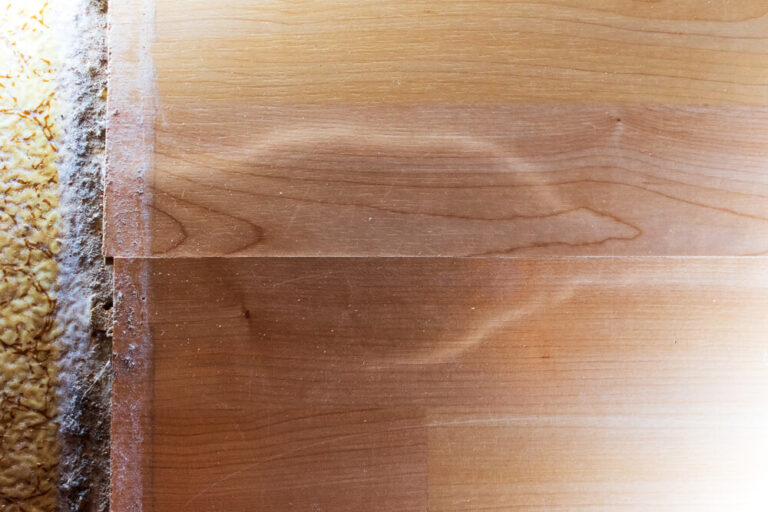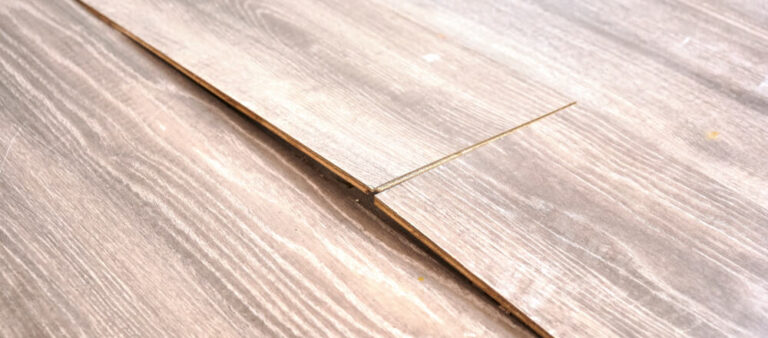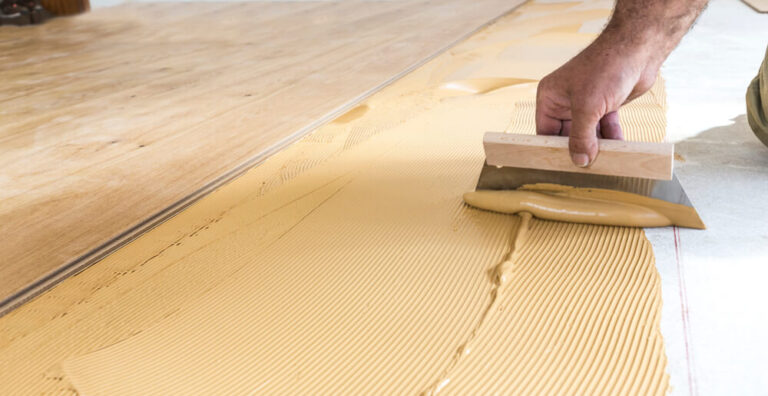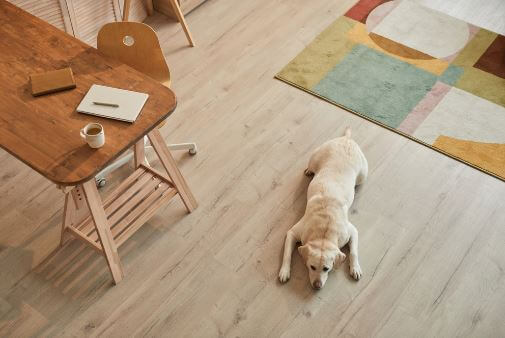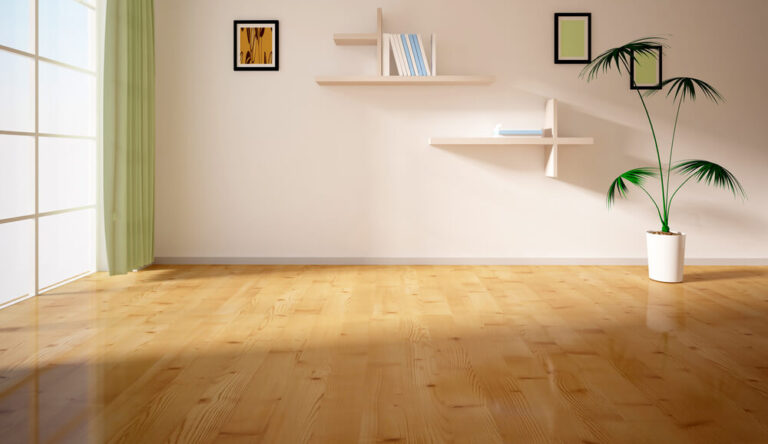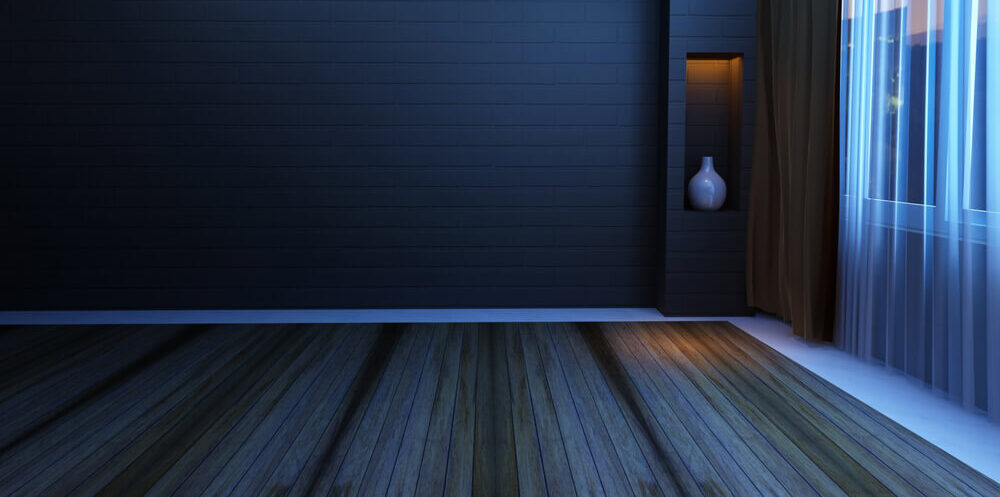
Last month, a friend of mine came to me with a query, “Why do wooden floors creak at night, especially when no one is on them?” Being a hardwood flooring expert, I helped him with practical solutions and satisfied him thoroughly.
Hardwood floors squeak at night due to expansion caused by a decrease in temperature, increased humidity, and moisture absorption. It may be due to poor installation or the home settling. Two floorboards move against each other, producing friction and, eventually, a shrill sound.
In this article, we’ll go over every possible cause of floor squeaking, effective ways to fix them, and other necessary details to help you restore the floor to its max.
Hardwood floors are still one of the popular flooring types. Despite their common use, they suck when they creak and squeak. According to research, this noise badly impacts a human’s psychological and physiological health.
It is high time to know its major causes and eliminate the flooring noise problem. Let’s have a look at the major factors responsible for squeaky wooden floors;
Why Do Wooden Floors Creak At Night- Some Major Causes
Whether its a recently installed new floor or an old one, both may creak due to any of the following reasons:
1. Decrease In Temperature
Change in temperature causes expansion and contraction of wood. When temperature drops, wood planks or boards cool down and shrink in size. This causes a small gap among the joints. When someone walks on them, they rub against each other, experience friction, and creak.
2. Increased Level Of Humidity
Contrary to a decrease in temperature, hardwood floors expand lengthwise on absorbing moisture at increased humidity level beyond the normal value. On expansion, it puts pressure on the nearby plank and squeals on coming back to its original position.
People usually ask, “do hardwood floors creak more in winter?”. Yes, Seasonal expansion and contraction occur at their maximum in extreme temperatures like summers or winters.
3. Separation Between Floor Layers
A floor comprises four essential layers, i.e., joist, subfloors, underlayment, and surface. Gaps between these layers cause movements and, eventually, an irritating sound..
a. Joist Issues
Joists are the lowermost layer of the floors. They are the wood frameworks that are laid to stabilize the floors. Their problem may include loosening the layer and gaps between joists and subfloors. This will eventually produce a creak.
If you want to confirm the creak of a joist, analyze the room or basement beneath that floor area.
b. Subfloor Issues
Subfloors are smooth floors on top of the joists. When installed unevenly, they have spaces left that may produce noise later. Besides these, When subfloors get old or water damaged, they lose their ability to hold nails or glue attachments and leave their original space. This will cause disturbance in the flooring and eventually a noise.
4. Manufacturing Defects
You may get damaged wood board pieces, and your flooring expert fixes them in the floor the same way. They may be slightly twisted or contain small damage in them. This will cause difficulty in fitting, and improper adjustment will produce a squeal.
5. Poor Installation Of Floors
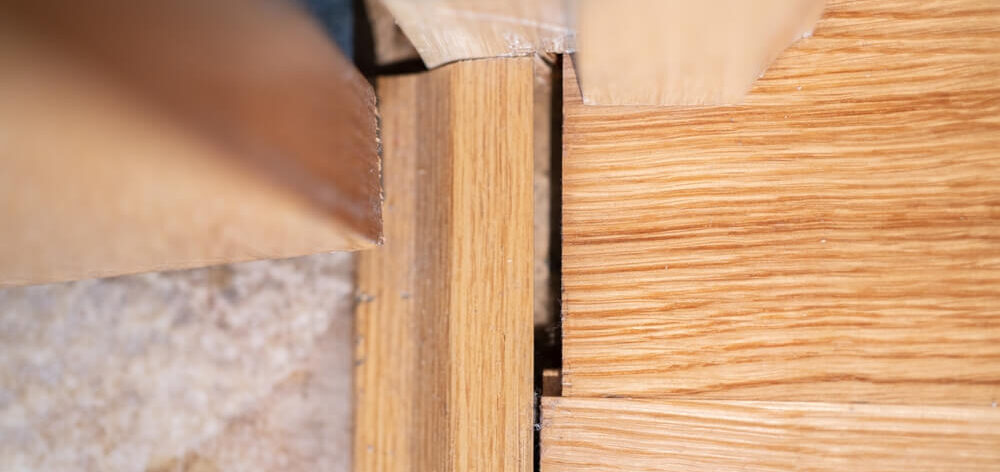
Sometimes, floors need to be installed properly, and poor workmanship may produce long-term and continuous flooring noise. Manufacturers have mentioned the proper and to-be-followed guidelines on floors. Not following them results in irregular bumps containing flooring.
Besides this, some flooring professionals need to pay more attention to their work and perform the task carelessly. They try to end it in a hurry and use nail guns inappropriately. They need to adjust the planks’ angle better. This sometimes misses the nails to join the two floors correctly, resulting in no benefit of nailing or gluing.
6. Home Foundation Movement/Settlement
Over time, floors expand or contract, which results in the settlement of homes. Due to this slight movement, wooden floors, joists, and subfloors also move and rub against each other producing sound.
However, if there is a drastic movement, you may feel a potential creaking and floor damage.
7. Types Of Wood That Creak The Most
Almost every wood creaks if handled carelessly or faces the seasonal effect. However, solid wood floors squeak the most compared to engineered floors. This is because engineered floors are polished and prepared in the best way that can easily bear slight changes and does not produce any sound.
Although every part of the home creaks, the hardwood floors and upstairs are majorly affected.
How To Fix Wooden Floor Squeak At Night
Start by locating a creak in the floor and implement one of the following techniques for wood floor creak restoration:
1. Install Air Dehumidifier
An air dehumidifier is the best controller of Humidity in the room that prevents the expansion of the wood and keeps it in its original place. Search for a good dehumidifier according to your budget. Install it in your room, where you find a wood creak.
2. Install Auxiliary Heating System
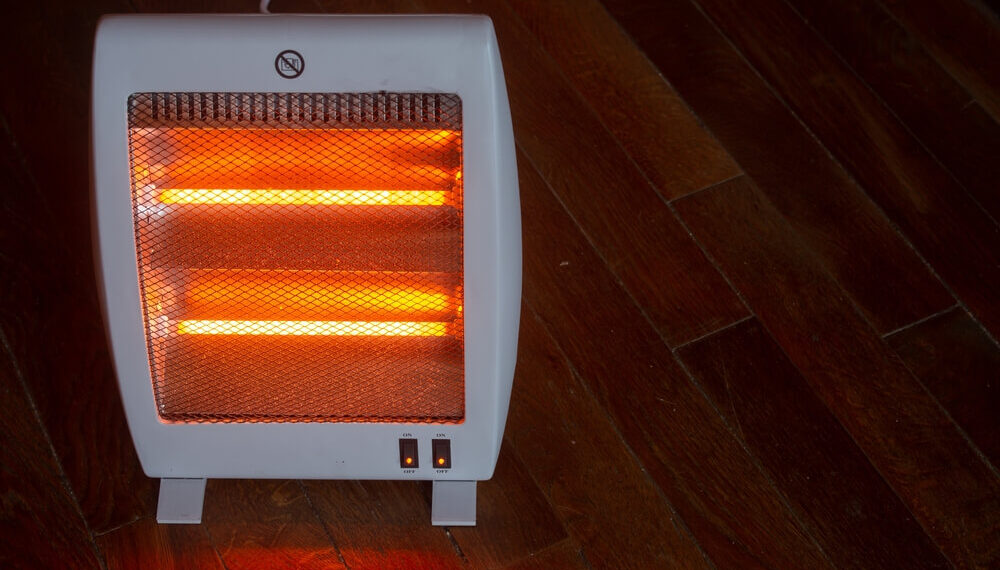
Suppose a temperature drops too much that it causes the shrinkage of the wood. It will help if you regulate the temperature of a concerned room by using an auxiliary heating system. This will prevent the excessive cooling of your wood, and no squeaking will be heard.
3. Drive The Nail Or Screw
Nailing or gluing hardwood floors is the most common installation method. If the sound is due to misalignment or loose wood planks, get them settled in their place by driving nails and screws. Make sure you use long enough nails to effectively join the two layers.
Squeak-ender can also be used to join the two-floor layers. This is a piece of hardware composed of steel plates that must be mounted and fixed through screws.
4. Glue The Mobile Floorboards
By using strong construction adhesives, moving floor layers or some loose parts can be held in place.
5. Install Shims
You can also use shims to avoid scratching due to empty spaces in the wood planks. Shims are thin, tapered, wooden wedges that are used for a perfect fit. Insert them where you find a gap, and noise will be restored.
6. Pour Any Powder In The Joint
Hardwood floors with empty spaces experience a friction force on rubbing. This may produce an irritating noise which can be prevented by sprinkling some powders, like baby powders, talc, talcum powders, etc., in the joints.
Remember, this is a short-term solution; know the exact cause of your floors creaking and get a permanent solution for your problem.
7. Coat A Layer Of Oil On a Wooden Floor
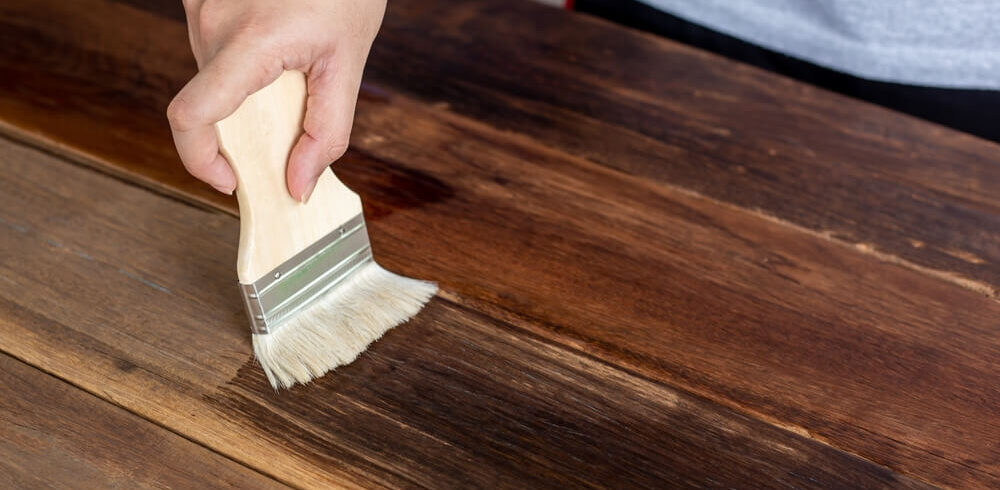
A dry floor requires some lubricants for its easy movement. Take some oil in a bowl and a soft brush. Coat a thin layer of oil to provide a nourishment and greasy effect to the floors for easy movement. This will prevent squeaking due to dryness and poor maintenance.
Are Squeaky Floors A Structural Problem?
Generally, squeaky floors are not a signal for structural problems like distortion of the home base layer. It only highlights the difficulty in wood planks’ movements except for the foundation settlement. A significant change in home floors may cause loud noise indicating structural issues, but this is not seen commonly.
FAQs

Let’s learn about the most commonly asked questions about floor noise:
Is It Normal For A House To Creak At Night?
Yes, it is safe and normal for wood floors to creak at night. It happens because of expansion and contraction caused by temperature change. On cooling, the wood shrinks and tries to fit in its original location, producing a shrill sound.
Do Squeaky Floors Mean Termites?
Excessive squeaking may be a sign of termites damaging your floors. Termites are the secondary cause of floor creaking. They eat up and weaken the floor, which becomes sensitive to movement. Due to this movement, floors produce an irritating sound.
Does Humidity Cause Floors To Creak?
Yes, Humidity increases the moisture level in the room absorbed by the wood and causes its expansion. On cooling, it shrinks, restores its position, and moves against the nearest board. These opposite movements cause floors to scratch.
How Much Does It Cost To Fix Noisy Floors?
On Average, restoring creaky floors cost you about $200-$1000, depending on the level of damage. You may get a customized package from flooring experts by consulting them according to your floor condition.
Do Rugs Help With Creaky Floors?
Rugs absorb the pressure your foot puts on the floor while walking. This will reduce the level of movement on the floors, reducing the squeaky noise. In other words, it is an instant solution for reducing noise.
Final Verdict
The squeaking of wood floors does not depend on the age of the floor. Both old and new floors may creak. It can be caused by several environmental, manufacturing, or installation issues. This problem can be solved by maintaining the floors’ temperature, Humidity, and stability.

